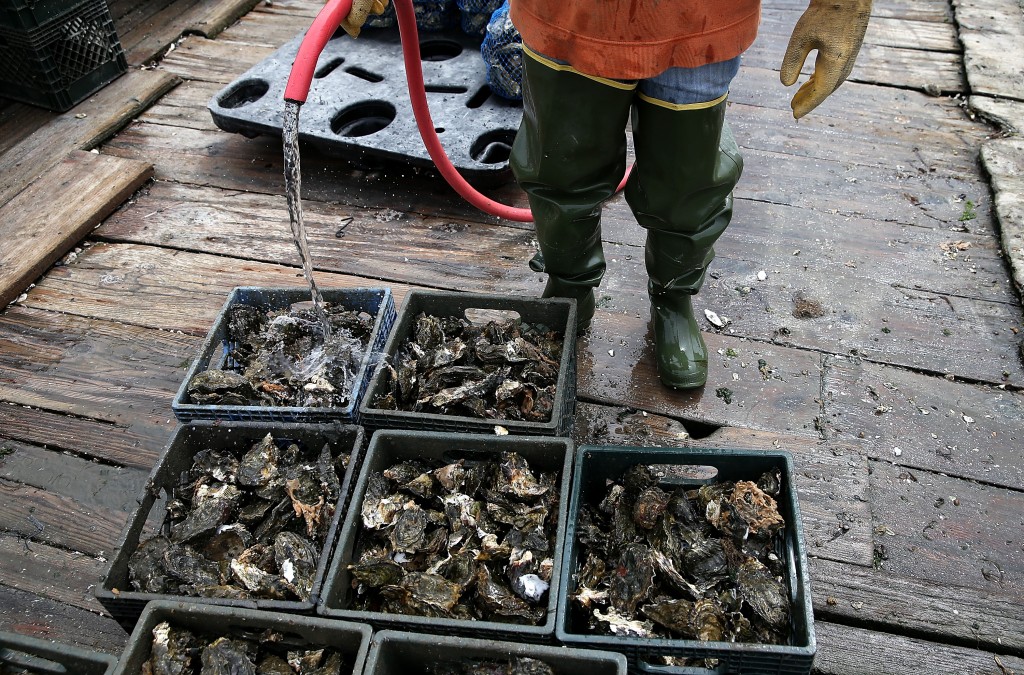In a story as much about political campaign finance as about oyster farming in Washington State, climate change, ocean acidification and business competiveness are major themes.
“It used to be the canary in the coal mine,” Mr. [Gov. Jay] Inslee said in a recent interview. “Now it’s the oyster in the half shell. You can’t overstate what this means to Washington.” – New York Times
The democratic governor is using struggling oyster farms as an example of climate change in hopes of convincing conservative voters that global warming is a real problem impacting local businesses. And billionaire environmental activist Tom Steyer is helping fund Inslee’s November election campaign and messaging efforts much to the ire of local republican politicians.
“In 2013, Mr. Steyer’s group spent $275,000 in Washington to help ensure the election of four pro-environment candidates to the local council in Whatcom County, where candidates normally spend less than $25,000 for a single race. As a result, prospects are now dim for council approval of a proposed $600 million port in Whatcom near the border with British Columbia, which, if constructed, would facilitate the shipment of 48 million tons of coal annually to Asia from Montana and Wyoming.
The port would be a lifeline for the states’ coal producers, who anticipate the shutdown of American coal-fired power plants because of emissions limits proposed by the Obama administration and hope to send their coal via rail to the proposed Washington port. But Mr. Inslee and Mr. Steyer see them as a climate disaster in the making.”
“…Thank God that the people of my district were smart enough not to be purchased,” [Republican Senator] Ms. [Jan] Angel said. “When you have people with deep pockets like Tom Steyer coming in and trying to trash candidates, spending this kind of money, it’s a sad day for our democracy.” – New York Times
And getting back to the oysters, ocean acidification currently impacts infant populations that cannot develop thick enough shells to survive. Oyster farmers deal with this by introducing alkaline chemicals into controlled environments, but if acidification worsens it could impact adult populations as well.
A local five-generation oyster farmer Paul Taylor recognizes climate policies could increase some of his operating costs, but that’s a trade-off he’s willing to accept because the alternative would be far worse.
“I’m a businessman.” he said. “I know this could raise the cost of fuel for my boats and electricity for my buildings. But if this problem gets worse, and our oysters can’t grow, then we just go away as a business.” – Paul Taylor, as reported in the New York Times

